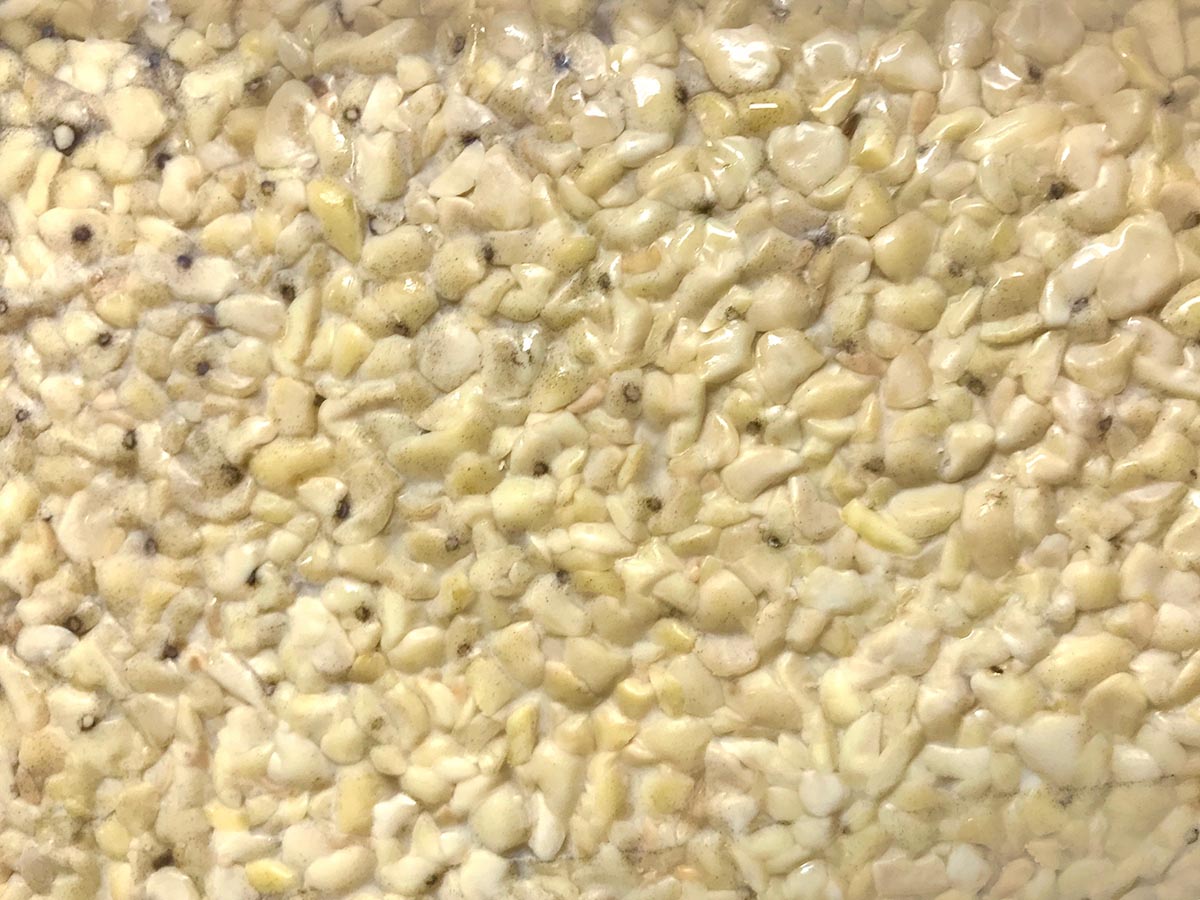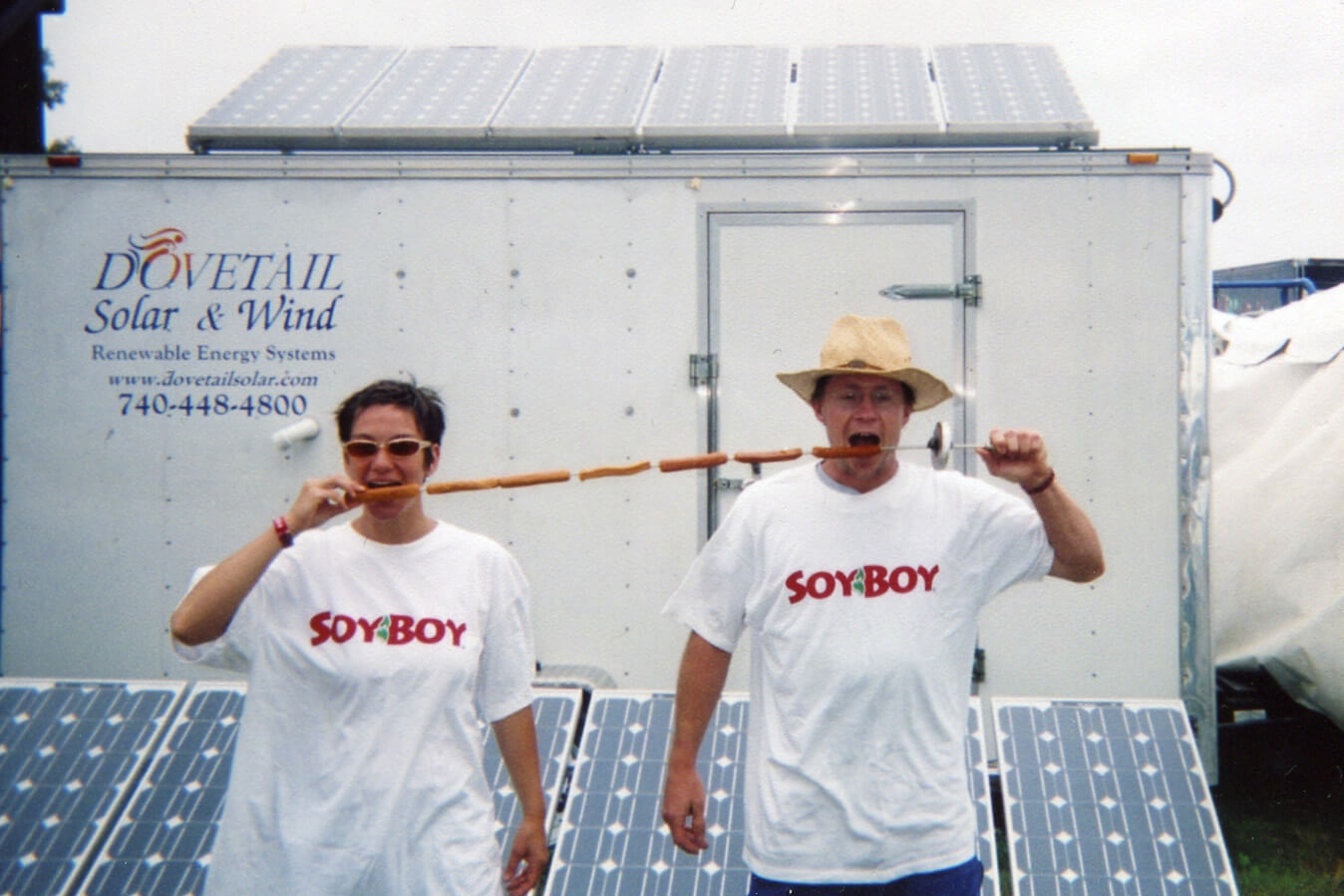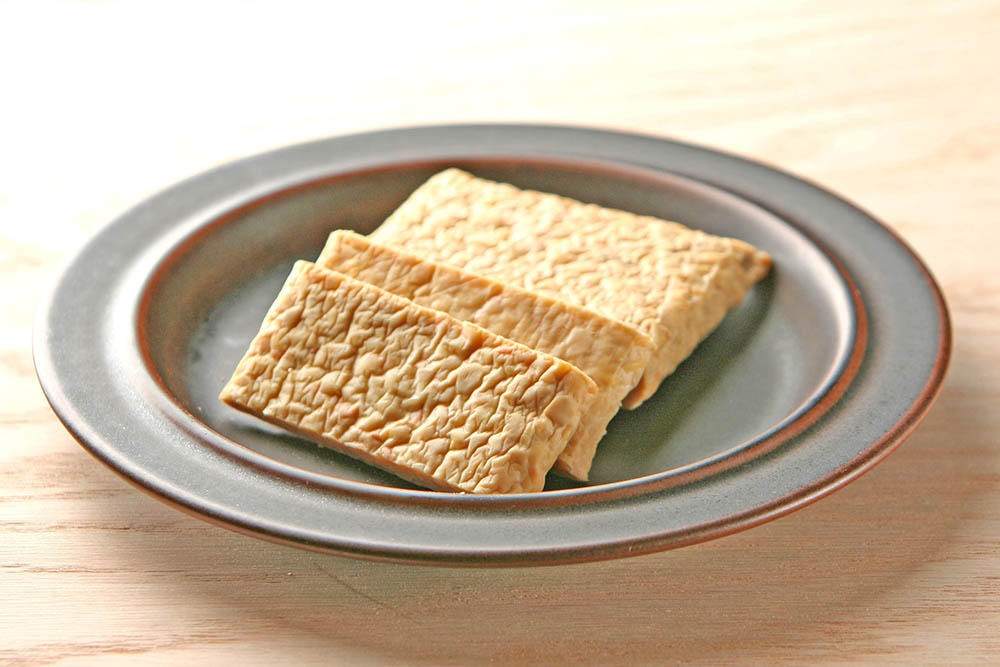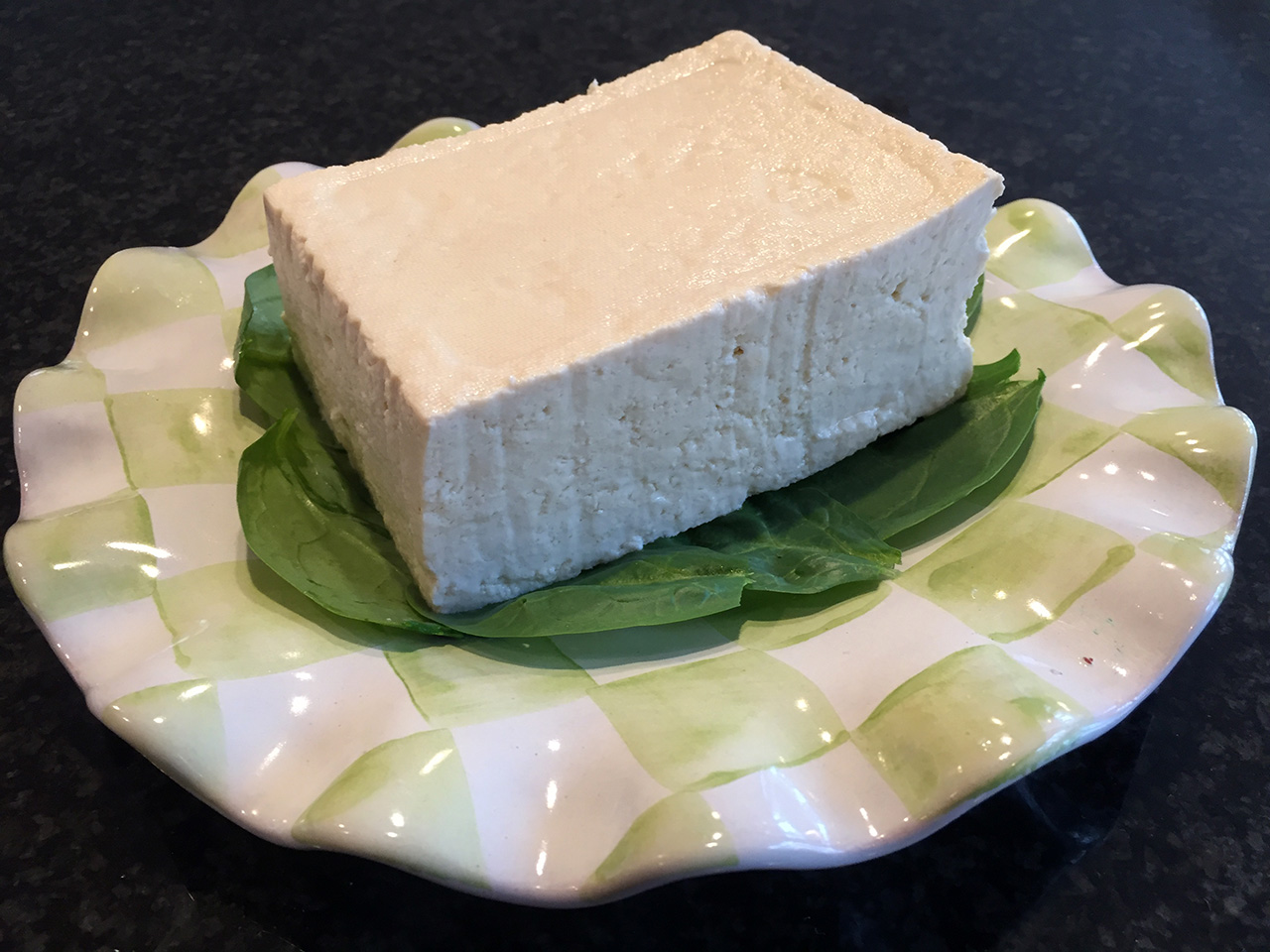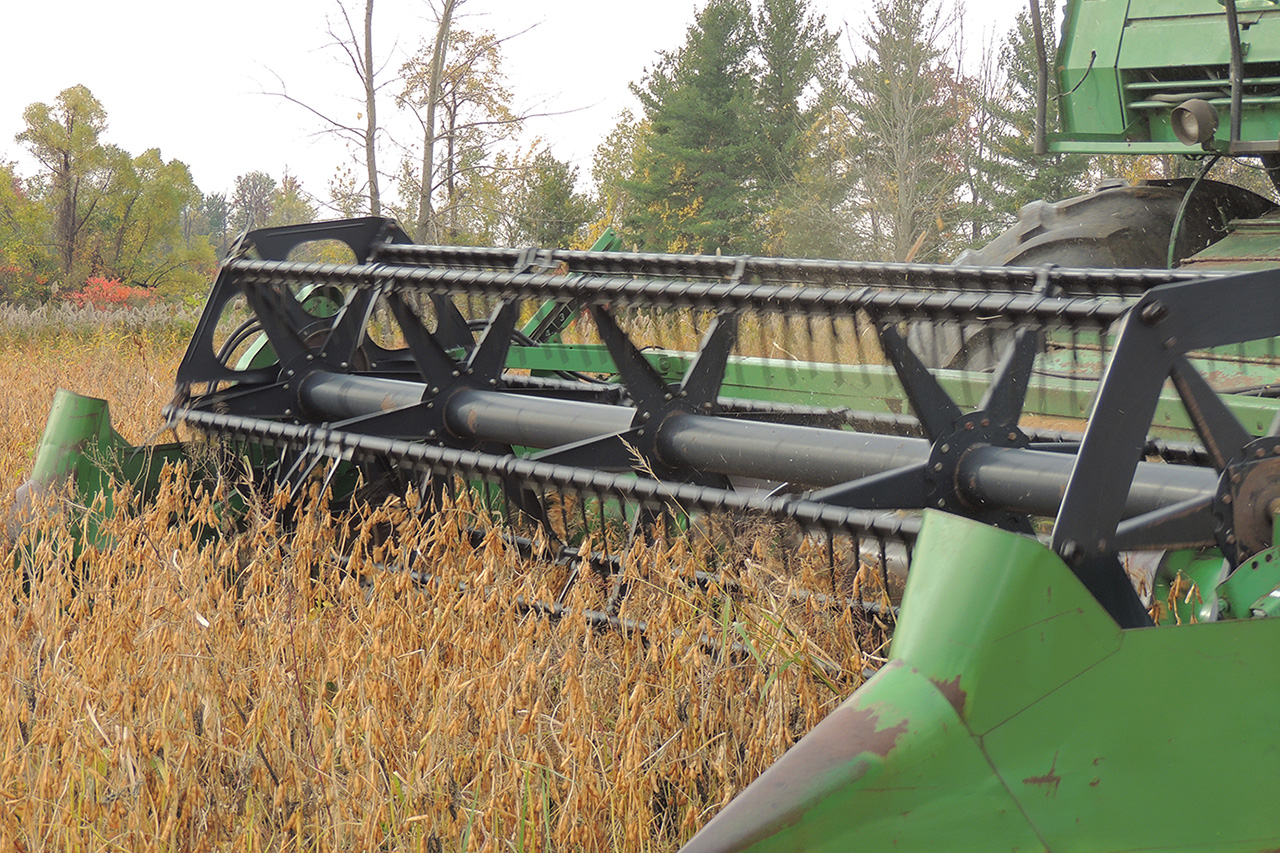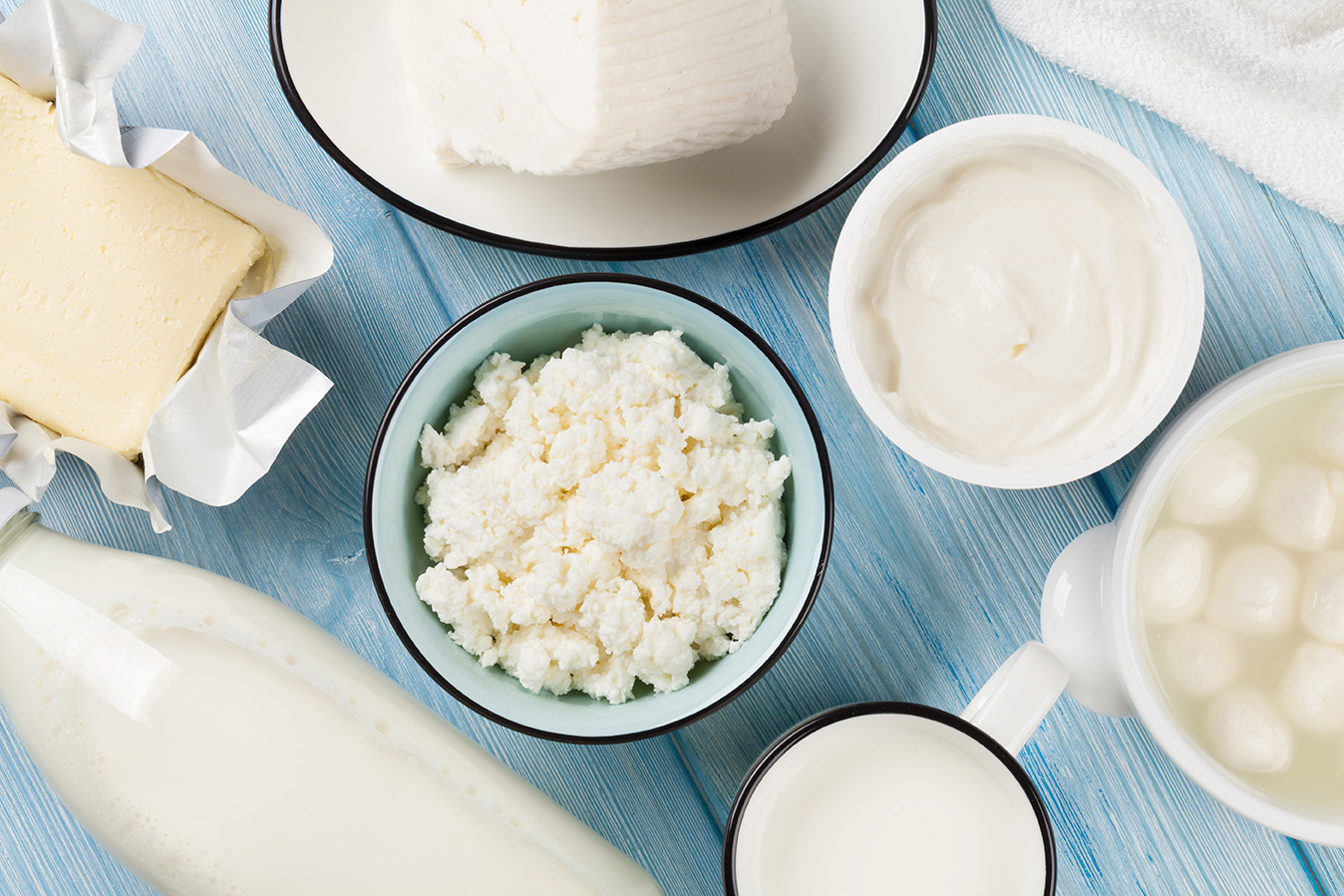As a team that absolutely loves tempeh, we’ll be the first to admit that it’s not the world’s prettiest food. But to a food scientist, it’s beautiful. While most people who know tempeh won’t be scared off by its appearance, there’s one quirky aspect of this fermented plant protein that people often question. It’s those gray or black spots. We occasionally get emails from people saying, “I bought your tempeh but I can’t eat it — it’s moldy!” We always get a chuckle as we explain to them that tempeh is SUPPOSED to be moldy! If it wasn’t moldy, it wouldn’t be tempeh! 🙂 Here’s how to tell if your tempeh is still safe to eat.
Good Mold
To understand where the dark spots come from, you’ll need to know a little bit about how tempeh is made. Tempeh is a fermented food, and that’s one of the reasons it’s so popular. To make it, we add a special type of mold called “Rhizopus” to cooked soybeans (or a mixture of beans and grains). The mold breaks down the carbs, oils, and proteins in the soybeans, improving their texture, flavor, and digestibility, and creating a sliceable tempeh “cake.” Once the tempeh is done, we stop the fermentation process with a thorough cook step, which deactivates the mold.
Spores & Spots
During fermentation, the good mold is allowed to grow and reproduce. When this particular mold matures, it can create spores that are pigmented black or gray. It’s these spores that appear as small dark spots on the surface of your tempeh. These spots are completely normal and totally edible, and they’re a sign that your tempeh is fully mature. They don’t affect the flavor at all.
Bad Mold?
Like most foods, tempeh can spoil after it’s opened and grow mold. Fortunately, it’s easy to tell the good mold from the bad. First off, the harmless spots are black or gray, and the spots on your tempeh shouldn’t grow. The good mold is killed off in pasteurization, so any mold that continues to spread probably got there after arrival in your home. Don’t eat any spots that look hairy or furry. Normal tempeh should smell earthy or nutty and have a firm, moist texture. It should not be slimy or wet. If you smell an ammonia-like odor, pitch your package of tempeh. If you do buy a package of tempeh and find that it has any of these signs of bad mold when you open it (before the expiration date and even though it’s been properly refrigerated), the maker needs to know! Take a picture, jot down the lot code on the package, and contact the store or manufacturer. (If it’s SoyBoy tempeh, email us at info@soyboy.com.)
Food Safety at SoyBoy
Here at SoyBoy, we’ve created our own set of safety standards that goes far beyond what’s required by the food safety regulators. A food scientist makes sure that conditions are just right in our factory for making tofu and tempeh each day, and that the flavor, texture, and appearance of our products stays consistent. We taste every batch of tempeh for flavor & quality and perform analytical tests such as microbiological analysis and gluten-residue testing. We also conduct shelf-life studies to make sure our products stay fresh until the expiration date. All of our tempeh is pasteurized so that it’s ready to eat right out of the package, and it’s vacuum-packed to improve its shelf-life.
Food Safety at Home
Whether or not your tempeh has been pasteurized is important. The fresh, pasteurized tempeh you get from SoyBoy has been heat-treated, so it is totally safe to eat without cooking or heating. Unpasteurized (or “raw”) tempeh, however, is also available from some vendors in the United States. Raw tempeh should be handled with care before cooking, just like raw chicken, beef, or shellfish, so that bacteria doesn’t get on ready-to-eat ingredients. To be eaten safely, raw or unpasteurized tempeh must be thoroughly cooked. With SoyBoy’s 5-Grain and Soy Tempeh, we take care of the food safety for you.
The Final Word on Tempeh and Freshness
So now you know — small gray or black spots on tempeh are fine, and you can count on SoyBoy tempeh to be ready to eat right out of the package. For your home cooking needs, check out our Soy and 5-Grain Tempeh, both of which are organic, kosher, non-GMO, and gluten-free. If you need bulk tempeh for your restaurant or foodservice operation, please contact us via our wholesale inquiry form.

About
We began as a tiny enterprise to promote a vegetarian lifestyle. Now we’ve grown into an environmentally friendly company providing excellent employment for more than thirty people.
Links
Contact
345 Paul RoadRochester, NY 14624
Phone: 585-235-8970
Fax: 585-235-3753
